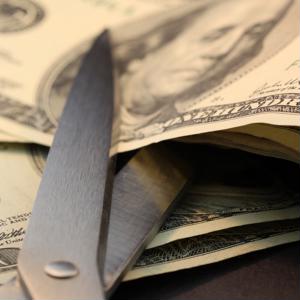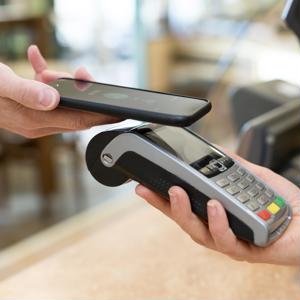
For the first time, consumers now have the option to pay merchants, not just their friends, using PayPal's digital payment app Venmo. Launched on January 27, the feature is currently limited to use within two third-party apps, food delivery service Munchery and events ticket vendor Gametime. But, with services expected to expand soon, these early adopters can offer us a glimpse into how Venmo could change the landscape for in-app payments.
From a consumer standpoint, here's how the service works: iPhone or Android users who have Venmo installed on their phones will see a Venmo button among the checkout options in compatible apps. Then, with just a tap, they will be able to use whatever payment information they have stored in the app to fund their purchase. For PayPal, this marks a … more
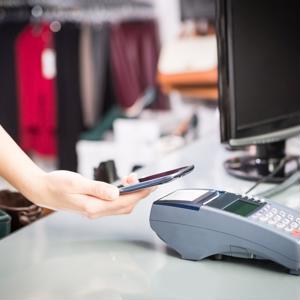 "The time has come: Mobile payments will either be the next big thing or a huge flop." This title from a 2015 article in Quartz captures the uncertain future of mobile payments - despite a growing list of smartphone companies and banks adding their own mobile wallets to what quickly became a crowded market, consumers' response remained lukewarm. It was difficult to determine whether shoppers would ever give up their plastic cards in favor of their smartphones. That future is now beginning to come into focus, and it looks like mobile payments may live up to expectations after all. In a study spanning some 40 million customers, Bank of America found mobile wallet transactions are up nearly 250 percent year-over-year, with mobile wallet spending following at 220 … more
"The time has come: Mobile payments will either be the next big thing or a huge flop." This title from a 2015 article in Quartz captures the uncertain future of mobile payments - despite a growing list of smartphone companies and banks adding their own mobile wallets to what quickly became a crowded market, consumers' response remained lukewarm. It was difficult to determine whether shoppers would ever give up their plastic cards in favor of their smartphones. That future is now beginning to come into focus, and it looks like mobile payments may live up to expectations after all. In a study spanning some 40 million customers, Bank of America found mobile wallet transactions are up nearly 250 percent year-over-year, with mobile wallet spending following at 220 … more
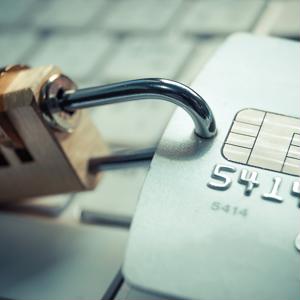 When it comes to keeping payment data secure, merchants have plenty of financial incentive. From undergoing a PCI-mandated forensic analysis to providing credit monitoring for affected customers, a data breach can set small business retailers back as much as $50,000, according to FirstData. However, new research suggests companies could stand to suffer even more in lost business if their point-of-sale systems are compromised. Nearly one in five consumers said they would stop shopping at a retailer altogether if it suffered a POS security breach, according to KMPG's 2016 Consumer Loss Barometer. Another 33 percent said they would likely not make another purchase there for at least three months. These results suggest that merchants would have to content …
When it comes to keeping payment data secure, merchants have plenty of financial incentive. From undergoing a PCI-mandated forensic analysis to providing credit monitoring for affected customers, a data breach can set small business retailers back as much as $50,000, according to FirstData. However, new research suggests companies could stand to suffer even more in lost business if their point-of-sale systems are compromised. Nearly one in five consumers said they would stop shopping at a retailer altogether if it suffered a POS security breach, according to KMPG's 2016 Consumer Loss Barometer. Another 33 percent said they would likely not make another purchase there for at least three months. These results suggest that merchants would have to content … 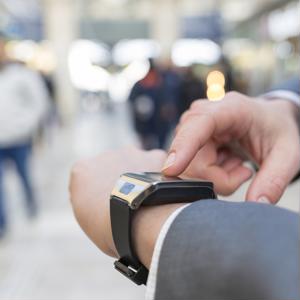 What started with fitness bands and smart watches has now grown to become a $20 billion dollar wearable technology industry, according to Goldman Sachs. Despite being a newcomer to the consumer market, nearly 50 percent of consumers already own at least one wearable device, PwC found, leading many to believe they hold the key to future of in-store payments.Tractica, for example, predicts consumers will make more than $500 billion worth of payments via wearable as soon as 2020. While this surely signifies an exciting period of change for shoppers, retailers must also be ready to adapt to the shifting contactless payments landscape.Here's what you need to know as you prepare for the upcoming wearable payments boom:1. You might already have the hardware.
Most wearable devices would …
What started with fitness bands and smart watches has now grown to become a $20 billion dollar wearable technology industry, according to Goldman Sachs. Despite being a newcomer to the consumer market, nearly 50 percent of consumers already own at least one wearable device, PwC found, leading many to believe they hold the key to future of in-store payments.Tractica, for example, predicts consumers will make more than $500 billion worth of payments via wearable as soon as 2020. While this surely signifies an exciting period of change for shoppers, retailers must also be ready to adapt to the shifting contactless payments landscape.Here's what you need to know as you prepare for the upcoming wearable payments boom:1. You might already have the hardware.
Most wearable devices would … 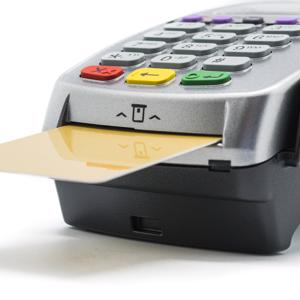 Across the country, the number of consumers and retailers with access to EMV technology continues to grow, helping drive down fraud rates at some of the nation's largest merchants. As many as 80 percent of Mastercard's consumer credit cards in the U.S. now have the embedded chips necessary for EMV payments, according to the card company. Consumers can use those cards to make EMV payments at 1.7 million merchant locations that now accept Mastercard chip payments. While that figure is up a whopping 374 percent since the October 1, 2015 liability shift deadline, it still represents just 30 percent of the total U.S. merchant population, Mastercard reported, suggesting there's still plenty of progress to be made in driving EMV adoption.Merchants who …
Across the country, the number of consumers and retailers with access to EMV technology continues to grow, helping drive down fraud rates at some of the nation's largest merchants. As many as 80 percent of Mastercard's consumer credit cards in the U.S. now have the embedded chips necessary for EMV payments, according to the card company. Consumers can use those cards to make EMV payments at 1.7 million merchant locations that now accept Mastercard chip payments. While that figure is up a whopping 374 percent since the October 1, 2015 liability shift deadline, it still represents just 30 percent of the total U.S. merchant population, Mastercard reported, suggesting there's still plenty of progress to be made in driving EMV adoption.Merchants who … 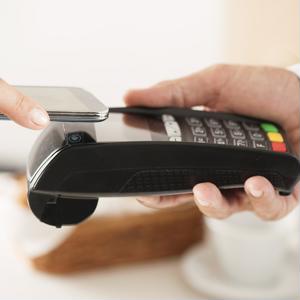 For years, one of the most rewarding parts of opening your first checking account was the moment you were handed your debit card for the first time. With that little piece of plastic, you could pay for goods and take out cash from stores and ATMs just about anywhere. For new Wells Fargo customers, however, the plastic card will play far less of a role. In fact, first time account holders may enter a world where they hardly have to use their debit card at all. Wells Fargo members now have access to a new mobile wallet from the bank, which allows shoppers to make NFC payments in eligible stores without taking their cards out of their wallets. When they need cash, they will soon be able to extract it from NFC-enabled ATMs currently being upgraded across the country. About 40 …
For years, one of the most rewarding parts of opening your first checking account was the moment you were handed your debit card for the first time. With that little piece of plastic, you could pay for goods and take out cash from stores and ATMs just about anywhere. For new Wells Fargo customers, however, the plastic card will play far less of a role. In fact, first time account holders may enter a world where they hardly have to use their debit card at all. Wells Fargo members now have access to a new mobile wallet from the bank, which allows shoppers to make NFC payments in eligible stores without taking their cards out of their wallets. When they need cash, they will soon be able to extract it from NFC-enabled ATMs currently being upgraded across the country. About 40 …  On this year's second-quarter earnings calls, businesses around the country announced past profits and future initiatives to their shareholders, but none had quite as much to share as financial giants Visa and PayPal. On July 21, the two companies announced a deal that will propel PayPal's push to the in-store market while extending Visa's presence online. Under the partnership, PayPal will stop steering users away from linking their Visa cards to their accounts. Previously, the company encouraged users to connect their bank accounts directly to their PayPal wallets instead, so that PayPal could process payments with ACH's low fees rather than pay card processing fees. In exchange, Visa will include PayPal in its Visa Digital Enablement Program, which allows …
On this year's second-quarter earnings calls, businesses around the country announced past profits and future initiatives to their shareholders, but none had quite as much to share as financial giants Visa and PayPal. On July 21, the two companies announced a deal that will propel PayPal's push to the in-store market while extending Visa's presence online. Under the partnership, PayPal will stop steering users away from linking their Visa cards to their accounts. Previously, the company encouraged users to connect their bank accounts directly to their PayPal wallets instead, so that PayPal could process payments with ACH's low fees rather than pay card processing fees. In exchange, Visa will include PayPal in its Visa Digital Enablement Program, which allows … 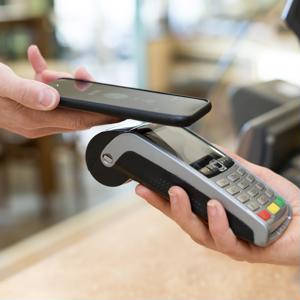 Last October's EMV deadline handed merchants across the country a new ultimatum: Upgrade your terminal to accept EMV card payments or assume responsibility for any fraud that comes from the less secure magnetic-swipe transactions. Still, almost a year later countless retailers have yet to adopt the hardware they need to accept chip cards at the point of sale. What they may not realize, however, is that most EMV terminals also include the near-field communication technology required to accept tap-to-pay options, such as mobile wallets and contactless cards. Therefore, by failing to update their POS terminals, not only are merchants eschewing chip cards, but they are also missing out on a chance to accept a rapidly growing payment style that could benefit both them and their …
Last October's EMV deadline handed merchants across the country a new ultimatum: Upgrade your terminal to accept EMV card payments or assume responsibility for any fraud that comes from the less secure magnetic-swipe transactions. Still, almost a year later countless retailers have yet to adopt the hardware they need to accept chip cards at the point of sale. What they may not realize, however, is that most EMV terminals also include the near-field communication technology required to accept tap-to-pay options, such as mobile wallets and contactless cards. Therefore, by failing to update their POS terminals, not only are merchants eschewing chip cards, but they are also missing out on a chance to accept a rapidly growing payment style that could benefit both them and their …  For every retailer, accepting card payments brings a few major benefits, including improved cash flow, security and customer access. While direct perks like these often motivate individual businesses to adopt an electronic payment program, new research shows that the proliferation of electronic payments can have a massive impact on the national economy as a whole. When consumers opt to pay electronically, whether online or in person with a card, both they and the retailer are rewarded with convenience. Shoppers don't have to visit the bank as often to restock on cash, and never have to worry about delaying a purchase because their wallet is empty. Plus, they're able to buy the products they want without experiencing the pain of parting with their cash. On the other side of …
For every retailer, accepting card payments brings a few major benefits, including improved cash flow, security and customer access. While direct perks like these often motivate individual businesses to adopt an electronic payment program, new research shows that the proliferation of electronic payments can have a massive impact on the national economy as a whole. When consumers opt to pay electronically, whether online or in person with a card, both they and the retailer are rewarded with convenience. Shoppers don't have to visit the bank as often to restock on cash, and never have to worry about delaying a purchase because their wallet is empty. Plus, they're able to buy the products they want without experiencing the pain of parting with their cash. On the other side of … 
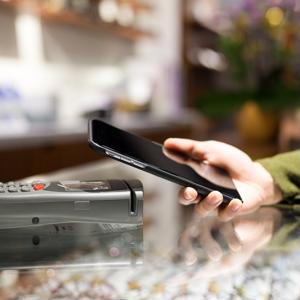 NFC-enabled device offer some clear benefits for merchants already upgrading for EMV chip card acceptance. While expanding your offering to accept mobile payments may once have required a significant upfront investment to purchase the proper hardware, most EMV terminals also include an NFC reader built right in. With the right technology already on your countertop, there has never been a better time to start offering your customers the option to pay with their phone.
NFC-enabled mobile payment systems are among the most popular.
Here are a few reasons an NFC-based system may be the best mobile payment strategy for your business to support:Popularity: Apple Pay currently boasts a user base of about 12 million consumers, with Android Pay accounting for another 5 million tap-to-pay …
NFC-enabled device offer some clear benefits for merchants already upgrading for EMV chip card acceptance. While expanding your offering to accept mobile payments may once have required a significant upfront investment to purchase the proper hardware, most EMV terminals also include an NFC reader built right in. With the right technology already on your countertop, there has never been a better time to start offering your customers the option to pay with their phone.
NFC-enabled mobile payment systems are among the most popular.
Here are a few reasons an NFC-based system may be the best mobile payment strategy for your business to support:Popularity: Apple Pay currently boasts a user base of about 12 million consumers, with Android Pay accounting for another 5 million tap-to-pay …  As Google dazzled developers at this year's I/O event, a theme emerged that hinted at the tech giant's vision for its role in the future of payments. Although it may not have released any new payment-specific hardware or software, nearly all of the offerings Google announced will in some way integrate with its Android Pay platform, bringing the digital payment method into a host of new realms. Whether your business can integrate with these tools right away or not, taking a look at how the world's largest company is innovating in the payment space could give you a glimpse into the norms of the future. Instant App Downloads
As a retailer, you might offer your customers product info, coupons or promotions via a custom mobile app. However, that valuable information could …
As Google dazzled developers at this year's I/O event, a theme emerged that hinted at the tech giant's vision for its role in the future of payments. Although it may not have released any new payment-specific hardware or software, nearly all of the offerings Google announced will in some way integrate with its Android Pay platform, bringing the digital payment method into a host of new realms. Whether your business can integrate with these tools right away or not, taking a look at how the world's largest company is innovating in the payment space could give you a glimpse into the norms of the future. Instant App Downloads
As a retailer, you might offer your customers product info, coupons or promotions via a custom mobile app. However, that valuable information could …  Every spring, Apple invites developers to its World Wide Developers Conference in San Francisco, where they can witness the iPhone company's latest software improvements and updates. Central to this year's conference was a motif we also saw on display at Google's I/O event earlier this year: the expansion of mobile payments. This comes as little surprise, as "mobile" seems to be implied in just about everything consumers do today. Reflecting this shift, the Cupertino, Calif. company unveiled two major updates that will change the way iPhone users make payments. "Pay with Apple Pay"
For the first two years of its existence, Apple Pay has been used primarily for consumers checking out in a store equipped with an NFC-enabled terminal. As the …
Every spring, Apple invites developers to its World Wide Developers Conference in San Francisco, where they can witness the iPhone company's latest software improvements and updates. Central to this year's conference was a motif we also saw on display at Google's I/O event earlier this year: the expansion of mobile payments. This comes as little surprise, as "mobile" seems to be implied in just about everything consumers do today. Reflecting this shift, the Cupertino, Calif. company unveiled two major updates that will change the way iPhone users make payments. "Pay with Apple Pay"
For the first two years of its existence, Apple Pay has been used primarily for consumers checking out in a store equipped with an NFC-enabled terminal. As the … 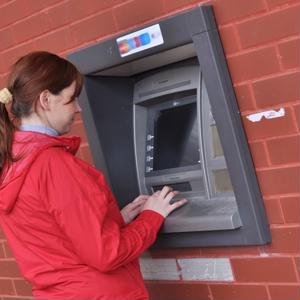 Consumers eschewing their credit and debit cards in favor of mobile wallets can get further than ever these days, using their phones to make payments at millions of retailers and via countless mobile apps. That being said, certain transactions still require a physical card, meaning even the most tech-savvy consumers have to carry their real wallets with them anyway. With their cards in their pockets, consumers often revert to old habits despite having set up the mobile payment app on their smartphones. It seems that to truly accelerate mobile payment adoption, consumers are going to have to feel comfortable leaving their cards behind altogether. One of the biggest reasons consumers have to carry their cards with them is to access …
Consumers eschewing their credit and debit cards in favor of mobile wallets can get further than ever these days, using their phones to make payments at millions of retailers and via countless mobile apps. That being said, certain transactions still require a physical card, meaning even the most tech-savvy consumers have to carry their real wallets with them anyway. With their cards in their pockets, consumers often revert to old habits despite having set up the mobile payment app on their smartphones. It seems that to truly accelerate mobile payment adoption, consumers are going to have to feel comfortable leaving their cards behind altogether. One of the biggest reasons consumers have to carry their cards with them is to access … 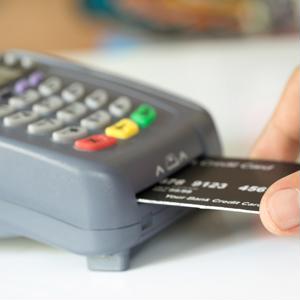 When EMV cards first came to the U.S., many called them by their European moniker: "chip-and-PIN." However, when it came time to make their first transaction with the more secure cards, many consumers were surprised they didn't require a PIN at all. Rather, the U.S. rollout relied on signatures to authorize its EMV payments. Now, the nation's largest retailer is looking to bring PIN authentication back to EMV. Wal-Mart sued Visa in New York State Court for the right to choose how its customers authenticate their card payments, reported the Wall Street Journal. In its lawsuit, Wal-Mart claims the four-digit passcodes are better at preventing fraud than simple signatures, but Visa has not allowed the retailer to require its customers to authenticate their …
When EMV cards first came to the U.S., many called them by their European moniker: "chip-and-PIN." However, when it came time to make their first transaction with the more secure cards, many consumers were surprised they didn't require a PIN at all. Rather, the U.S. rollout relied on signatures to authorize its EMV payments. Now, the nation's largest retailer is looking to bring PIN authentication back to EMV. Wal-Mart sued Visa in New York State Court for the right to choose how its customers authenticate their card payments, reported the Wall Street Journal. In its lawsuit, Wal-Mart claims the four-digit passcodes are better at preventing fraud than simple signatures, but Visa has not allowed the retailer to require its customers to authenticate their …  When Visa and MasterCard agreed to pay more than $7 billion to merchants claiming the financial institutions conspired to set interchange fees, several large merchants were notably absent from the proceedings. Now CVS, the leader of the so-called "CVS Plaintiffs" who opted out of the deal, has reached its own settlement with the card companies.According to Law360, a U.S. District Judge signed an order on March 29 effectively ending the pharmacy's suit, stating that CVS had "fully settled all of its claims" against Visa and MasterCard. The stipulation did not, however, disclose the terms of the deal, reports Law360."CVS was among those who decided the terms did not go far enough."This marks the most recent settlement in a case that has been more than four …
When Visa and MasterCard agreed to pay more than $7 billion to merchants claiming the financial institutions conspired to set interchange fees, several large merchants were notably absent from the proceedings. Now CVS, the leader of the so-called "CVS Plaintiffs" who opted out of the deal, has reached its own settlement with the card companies.According to Law360, a U.S. District Judge signed an order on March 29 effectively ending the pharmacy's suit, stating that CVS had "fully settled all of its claims" against Visa and MasterCard. The stipulation did not, however, disclose the terms of the deal, reports Law360."CVS was among those who decided the terms did not go far enough."This marks the most recent settlement in a case that has been more than four … 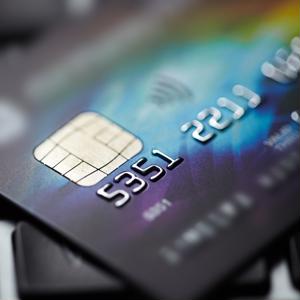 Visa and MasterCard have unveiled new technologies that will speed up chip card transactions at the point of sale. Hopefully, this could remove what has become a major sticking point for consumers who would rather leave the slower cards in their wallet.Quick Chip
Visa's new technology, announced April 19, will cut wait times to just two seconds or less, the company says. That's considerably faster than the 10-15 seconds many spend waiting after inserting their current chip cards into the terminal. The technology, which Visa calls Quick Chip, is available to all payment processors, banks and merchants free-of-charge, and requires only a software update to support, according to the company. Plus, Visa says the new system will allow shoppers to dip their cards while their items are …
Visa and MasterCard have unveiled new technologies that will speed up chip card transactions at the point of sale. Hopefully, this could remove what has become a major sticking point for consumers who would rather leave the slower cards in their wallet.Quick Chip
Visa's new technology, announced April 19, will cut wait times to just two seconds or less, the company says. That's considerably faster than the 10-15 seconds many spend waiting after inserting their current chip cards into the terminal. The technology, which Visa calls Quick Chip, is available to all payment processors, banks and merchants free-of-charge, and requires only a software update to support, according to the company. Plus, Visa says the new system will allow shoppers to dip their cards while their items are … 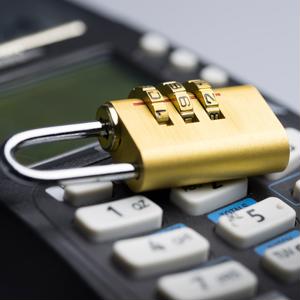 Nearly seven months since the EMV liability deadline pushed U.S. merchants to finally adopt EMV payments, the debate still rages about the best way for consumers to authenticate those transactions. Shoppers are currently asked to validate their chip-card payments with a signature, but many in the payments world have argued that the U.S. should embrace the chip-and-PIN method, which is used more frequently around the world.Now, another voice joins that chorus. David Nelms, chairman and CEO of Discover Financial Services, says PIN validation is the most sensible option for the future of U.S. credit card payments, according to reports from Payments Source.The reason the U.S. opted for signature validation over PIN is up for debate. Some claim they didn't want to confuse …
Nearly seven months since the EMV liability deadline pushed U.S. merchants to finally adopt EMV payments, the debate still rages about the best way for consumers to authenticate those transactions. Shoppers are currently asked to validate their chip-card payments with a signature, but many in the payments world have argued that the U.S. should embrace the chip-and-PIN method, which is used more frequently around the world.Now, another voice joins that chorus. David Nelms, chairman and CEO of Discover Financial Services, says PIN validation is the most sensible option for the future of U.S. credit card payments, according to reports from Payments Source.The reason the U.S. opted for signature validation over PIN is up for debate. Some claim they didn't want to confuse …  When today's consumers have questions, they're never more than a few taps away from an answer. That simple fact has changed the way they resolve debates, search for recipes and shop, no matter where they might be. It's no surprise, then, to see customers standing in front of the shelves at your store with their phones in hand, reading reviews or watching videos of a product in use - even shopping in a brick-and-mortar store has become, to an extent, an online experience. In fact, research from a 2013 Google study suggests that as many as 84 percent of mobile shoppers use their phones to help make decisions in a physical store. In the three years that have followed, one can only imagine those numbers have continued to climb along with the reliance on and …
When today's consumers have questions, they're never more than a few taps away from an answer. That simple fact has changed the way they resolve debates, search for recipes and shop, no matter where they might be. It's no surprise, then, to see customers standing in front of the shelves at your store with their phones in hand, reading reviews or watching videos of a product in use - even shopping in a brick-and-mortar store has become, to an extent, an online experience. In fact, research from a 2013 Google study suggests that as many as 84 percent of mobile shoppers use their phones to help make decisions in a physical store. In the three years that have followed, one can only imagine those numbers have continued to climb along with the reliance on and … 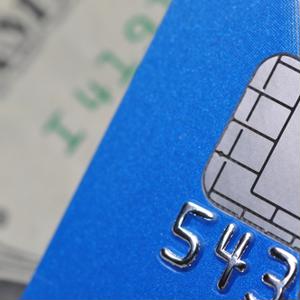




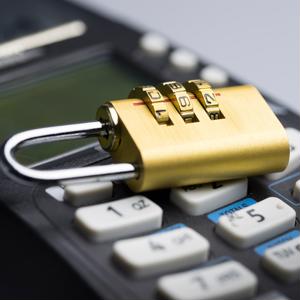

 Visa and MasterCard card brands have announced options for custom personalization options for new card designs. Merchants should be aware of these options and be prepared to accept any properly presented card at the point of sale.
Visa and MasterCard card brands have announced options for custom personalization options for new card designs. Merchants should be aware of these options and be prepared to accept any properly presented card at the point of sale.
